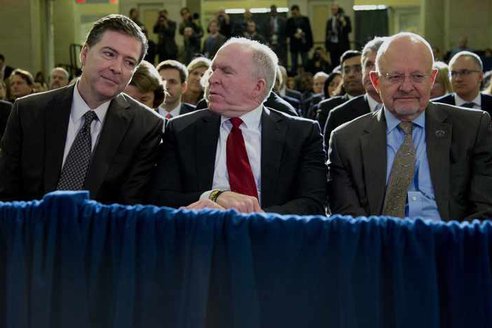China Wins a Little, Loses a Lot From Russia’s War on Ukraine Charles Lipson
The unfolding mayhem unleashed on Ukraine by Vladimir Putin carries one major benefit for China and two much larger losses, plus a boatload of secondary effects. The main benefit is geostrategic: The United States must now keep more scarce military resources in Europe, instead diverting them to the Pacific, as it had been hoping.
That diversion would be costly for any president, but it is particularly costly for a Democrat, whose party habitually scales back military budgets to spend more on social programs. Biden’s budget, submitted before the war in Eastern Europe, certainly did. He proposed a 16% rise in social spending but only a 2% increase for defense, far less than the inflation rate. Those priorities are now imperiled.
Also endangered is any reorientation of America’s defense posture, to focus almost exclusively on China. That focus, shared by Barack Obama, Donald Trump, and now Joe Biden, remains the country’s principal long-term challenge. But Putin’s aggression makes clear that the United States does not have the luxury of focusing on only one hostile (and nuclear-armed) power at a time. Russia’s war on Ukraine significantly raises the threat level in Europe and forces the Pentagon to avoid any drawdown there to fund increases in Asia. That’s true even though many of our NATO partners have finally agreed to spend 2% of their GDP on defense – a long-standing American demand. This renewed concern for Europe’s security is a potential gain for China.
Yet, any advantage to Beijing is offset by two costs that may be as just as important. The first is that China’s only major ally is now badly damaged, economically and militarily – and a pariah in the eyes of much of the world. Putin’s position may be more vulnerable, as well. And while Beijing can drive harder bargains for Russian oil, raw materials, and capital credit, Russia’s self-inflicted damage makes Moscow a much less valuable partner as long as the crushing sanctions remain in place and Putin remains in charge.
The second, far larger cost to China may be the deterrent effect of crippling economic sanctions. Communist party leaders, determined to seize Taiwan, must have been shocked by the scale, comprehensiveness, and devastating impact of sanctions imposed on Russia. They must have been shocked, too, by the West’s surprising unanimity in imposing them and by Germany’s swift about-face despite its dependence on Russian energy and decades of concessionary policies.
As the CCP watches the Russian economy implode, Chinese leaders must shudder at the thought of what could happen to their own economy if it faced a similar onslaught. Although the communist regime would likely survive, given its tight control over the army and internal security services and its more robust and diverse economy, it would have to withstand a sustained, destabilizing shock with uncertain consequences. Moreover, it would face some erosion of its legitimacy, the public’s acceptance of its right to rule. The CCP’s two main sources of legitimacy are its reassertion of China’s central role in the world and, since Deng Xiaoping’s reforms, the party’s ability to grow the economy and significantly increase the living standard of most Chinese families. Any fundamental threats to that economy, now deeply embedded in world markets, would pose a significant political challenge.
Until Russia’s economy withered under sanctions, Beijing had little reason to fear similar punishment for invading Taiwan. After all, the world’s major economies did nothing when Beijing seized Hong Kong, in clear violation of its treaty commitments. They did nothing when they learned of the Uighurs’ mass imprisonment, “reeducation,” and deaths. They did nothing to sanction China for its role in spreading the COVID pandemic, and lying endlessly about it afterward. Based on that track record, Beijing must have figured the world would do little if it seized Taiwan. No more. Xi and his aides will need to recalibrate after seeing Russia hit with swift, draconian sanctions and largely excluded from world financial markets, despite the costs to countries imposing those sanctions.
Foreign business entities operating in China are also recalibrating. Their assessment of political risks is bound to be higher, their search for alternative sources of supply more urgent. These companies saw how quickly their Russian investments became worthless after Putin’s invasion of Ukraine. While they would lobby hard against sanctions from Washington, Brussels, Berlin, and Tokyo, regardless of China’s actions, they can’t be sure they will succeed. The most vulnerable are foreign companies that rely on the Chinese market. They will adapt to the riskier environment by trying to diversify their final markets and minimizing any fixed assets within China.
The prospect of economic sanctions will not, in itself, block Beijing invading Taiwan. Only a military deterrent can do that. But the net effect of Russia’s troubles is to show China, with terrible clarity, that it would face grim economic costs on top of the military calculations.
Russia’s catastrophic experience in Ukraine also underscores the oldest lesson in strategy. The best-laid plans and most optimistic projections can go horribly wrong. Taiwan and its allies will drive home that enduring lesson. Taiwan will continue buying and building defensive weapons, as many as it can afford. The U.S. will continue sending its navy through the Taiwan Straits, and the Quad (the U.S., Japan, India, and Australia) will continue strengthening their security partnership. That’s the emerging shape of a new Cold War, with dangerous, nuclear-armed fronts in both Eastern Europe and the western Pacific.
Comments are closed.











